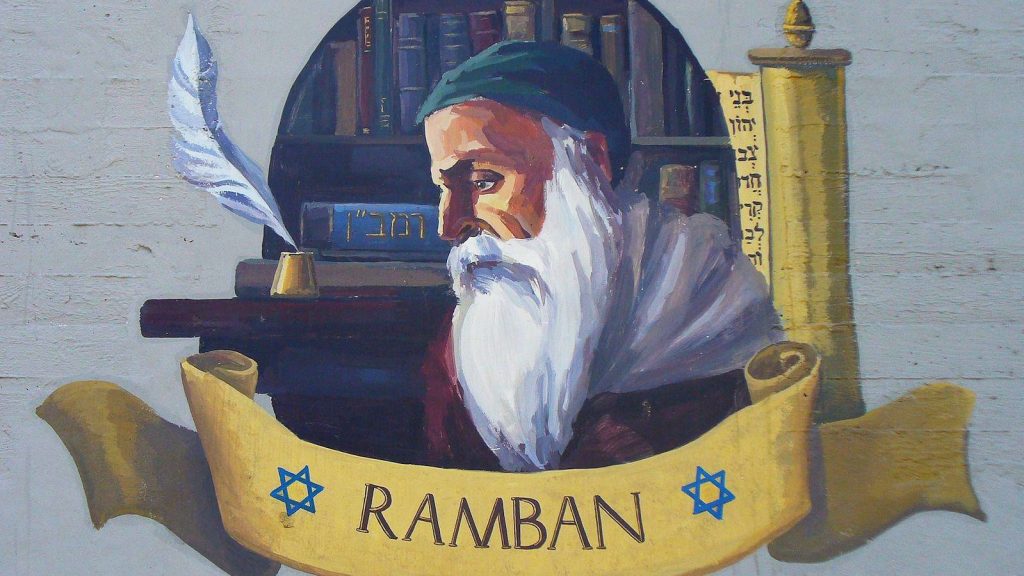
(3-4 Minute Read)
Numbers 22:2-25:9
In the Torah portion of Balak, the Moabite king of the same name sent delegates to a sorcerer and “mercenary prophet” of sorts named Balaam. The dignitaries, who also came from other nearby nations, such as Midian and Amalek, requested that Balaam use his spiritual prowess to curse the Jewish people. Balaam indicated that he would seek the counsel of the Most High, who clearly declared that the “mercenary prophet” should not try to curse the people of Israel. Balaam sent the delegates back to their nations of origin. But they soon returned with more pressure and more promises of compensation. Balaam again requested that the Almighty grant him permission to go. The Master of the Universe agreed, but only on the condition that he bless the people, and not curse them.
Balaam saddled his donkey and departed early in the morning, but the Most High was enraged. Accordingly, a malakh, or angel, opposed him on the way, and almost took his life. His donkey was aware of the spiritual danger, and in one of the most notorious scenes of the entire Torah, she apparently communicated with Balaam. The malakh, or angel, then informed Balaam that he had very nearly killed him. The malakh reiterated that, if Balaam were to go with the dignitaries, he could only do what the Almighty commanded.

Upon arrival, Balaam was brought by Balak and the dignitaries of the other nations to three mountains in order to view the people of Israel and to curse them. But despite his efforts to the contrary, the Most High induced Balaam to bless them instead. Balak and the other national leaders were outraged, and presumably sent Balaam home without payment.
Balaam, however, apparently developed a “plan B.” A gaggle of Moabite women approached the Israelite men, seducing them to engage in acts of immorality and also to worship their idols. Zimri, a leader within the tribe of Simeon, overtly brought the daughter of a Midianite chieftan, Cozbi, into his tent to engage in a blatant act of prohibited intimacy. A deadly plague ensued, and Pinchas (Phinehas), the grandson of Aaron, killed both Zimri and Cozbi with a spear.

There is a question as to why the Most High would first prohibit Balaam from journeying with the dignitaries in order to curse (or rather bless) Israel, and then seemingly “change His mind” (has v’halilah). Then, after the Almighty gives Balaam permission to go, He becomes incensed, and His malakh, or angel, nearly kills him. This account is particularly perplexing since even Balaam himself states later in B’Midbar (Numbers) 23:19:
“G-d is not a man, that He would lie; nor is He the son of man (i.e. a human being) to change His mind. Would He speak and not act, promise and not fulfill?”
So if the Holy One, Blessed Be He, never lies or changes His mind, why does it seem that He was being fickle or inconsistent (has v’halilah)?
Rabbi Moshe Ben Nachman, more commonly known as the RambaN, weighs in on the question. The RambaN notes that the nature of the two conversations between Balaam and the Most High is different. In the first dialogue, Balaam openly admitted that Balak’s messengers had requested that the sorcerer and “mercenary prophet” come to curse the Jewish people in order to destroy them. In the second discussion, the words of Balaam are not recorded, but there is no specific mention of cursing. As the RabmaN points out, Balaam had apparently altered the context of his communication with the Most High. In a manner similar to the previous terminology of “shelakh lekha,” or “send for yourself,” the Master of the Universe granted permission to Balaam’s repeated request to go with the dignitaries to meet with Balak. However, the Eternal One stipulated the condition that the “mercenary prophet” only say and do whatever the Almighty commanded.

Not long after Balaam left, the Holy One, Blessed Be He, was furious. Why? Based on the premise of the RambaN, one answer is that Balaam apparently was “playing games” and trying to “outsmart” the Most High. Balaam knew full well that the Almighty had refused to grant him permission to curse the Jewish people. And the “mercenary prophet” was also fully aware that Balak and the dignitaries had hired him to do exactly that. Balaam was cognizant of the fact that the Master of the Universe had allowed him to go with the dignitaries only in the context of blessing, rather than cursing. But Balaam was trying to be clever. He thought he could disobey later, and it would be too late. Or perhaps he hoped to “sneak” a subtle set of curses against the Israelites idiomatically “under the nose” of the Almighty. Either way, the Most High knew exactly what Balaam was foolishly plotting, and He was enraged. Thus, it seems as though this story is yet another example of a simple human being attempting to trick, manipulate, or outsmart the Omniscient and Omnipotent Ruler of the Universe.
Another interesting aspect of the story of Balaam and Balak is the nature of the blessings of the Jewish people in general. First, the Almighty had already declared to Abraham that his descendants would be blessed. Rabbi David Fohrman has pointed out that there are many similarities between the narrative of Abraham binding Isaac and the departure of Balaam, including “rising early in the morning” and “saddling the donkey,” (e.g. Bereshit / Genesis 22:3, etc.). Similarly and even more pertinently, several of the key themes of Balaam’s unintentional blessing mirror or reflect the previous blessings of the Most High declared in the days of Abraham, including the promises that “Israel would be as numerous as the dust” (B’Midbar / Numbers 23:10) and “…Blessed are they who bless you, and accursed are they who curse you.” (B’Midbar / Numbers 24:9)
Rabbi David Fohrman expounds upon this concept. What is the true nature of the blessings of the Jewish people, and how do we as a nation bless the rest of the world? These blessings do not come from some kind of “magic spiritual mojo,” and they do not relate to a “holier than thou” moral postulating to the rest of the world. Rather, the blessings of the Jewish people are all related to the Torah, in particular to the proper observance thereof. The Almighty and Moses reiterated repeatedly, especially in the book of Devarim, or Deuteronomy, that following the Torah results in blessings and disobedience results in curses. Again, this isn’t some kind of “spiritual magic.” Instead, the “natural consequence” of following the Torah is a blessing, and the result of disobedience is a curse. For example, the Torah (and all of Judaism) emphasize the need for strong family relationships. And the Torah makes it clear even in the Ten Commandments that adultery is prohibited. Building a strong marriage and family results in blessings for both spouses and the children in that unit. In contrast, marital infidelity and other forms of betrayal destroy these relationships, and the family members experience a form of a “curse.” In other words, the true structure of blessings for the Jewish people is the observance of the full Torah, and keeping the seven laws of Noah provides similar blessings to the other nations of the world. This Torah-based “blessing structure” is so integrated into the very fabric of the universe and our own human existence that no amount of Balaam’s attempted interference or any kind of “spiritual manipulation” could ever supersede it.

Unfortunately, however, Balaam soon understood this concept, perhaps even better than the Jewish people themselves. Balaam realized that he couldn’t overpower the blessings of the Most High through the Torah. But the “sorcerer-for-hire” soon comprehended that the rejection of the Torah does result in curses. So Balaam next engaged in “plan B.” And that back-up plan was to drive the Jewish people away from the Almighty and the Torah through seduction, immorality, and idolatry. Tragically, this plot was successful, at least partially, and over twenty four thousand people were destroyed almost immediately for their heinous sins.
May the Holy One, Blessed Be He, enable us as the Jewish people to ever maintain and increase our connection to Him as well as further our knowledge and observance of the Torah. And in so doing, may we continue to be blessed, and may we be a source of blessing to the nations around us. And may the Almighty continue to protect us and enable us to overpower any “Balaams” that we might encounter in our daily lives, seeking to “curse” us by driving us away from our true source of blessings: the Eternal One and His Torah.


